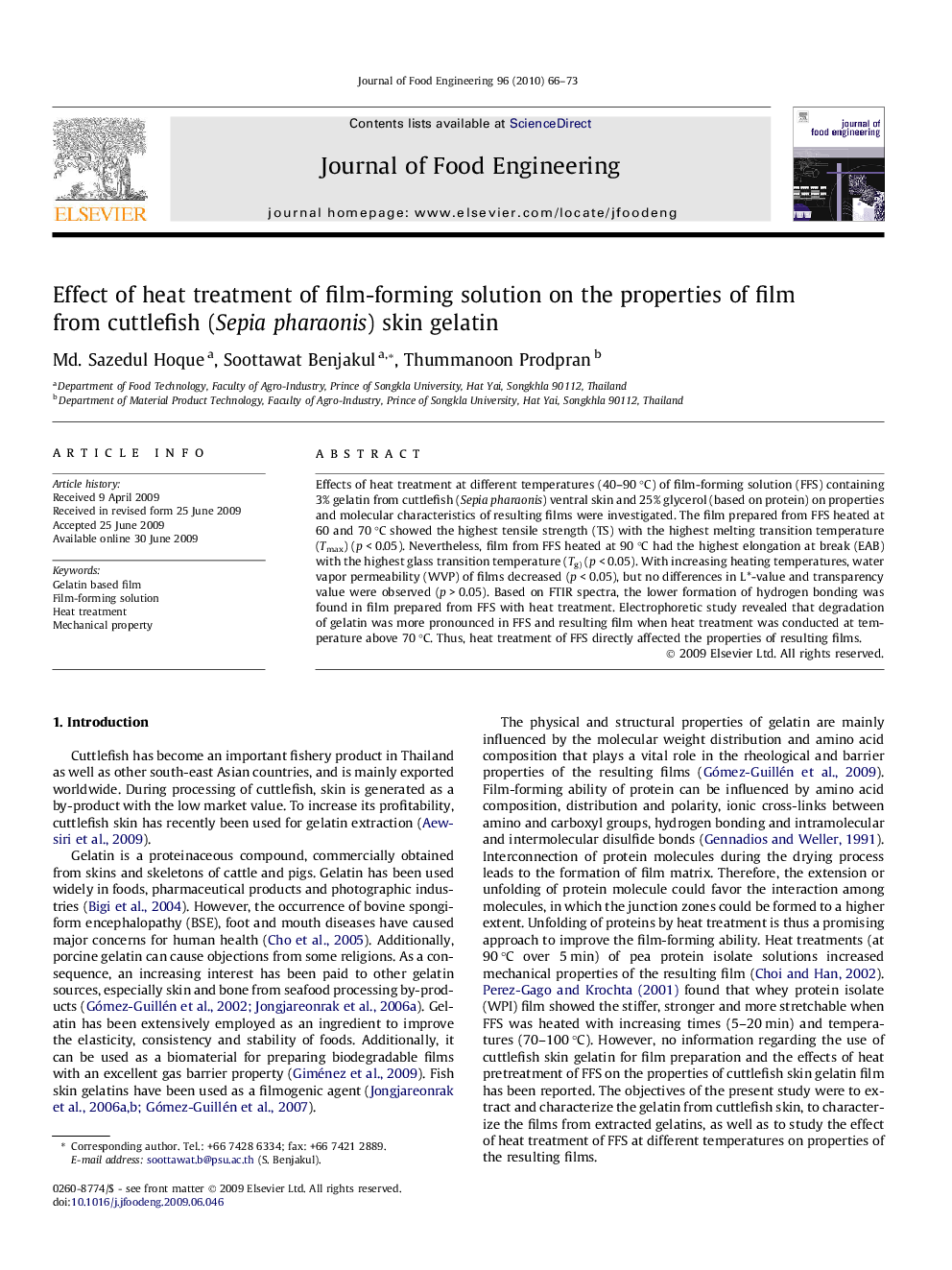| Article ID | Journal | Published Year | Pages | File Type |
|---|---|---|---|---|
| 224448 | Journal of Food Engineering | 2010 | 8 Pages |
Effects of heat treatment at different temperatures (40–90 °C) of film-forming solution (FFS) containing 3% gelatin from cuttlefish (Sepia pharaonis) ventral skin and 25% glycerol (based on protein) on properties and molecular characteristics of resulting films were investigated. The film prepared from FFS heated at 60 and 70 °C showed the highest tensile strength (TS) with the highest melting transition temperature (Tmax) (p < 0.05). Nevertheless, film from FFS heated at 90 °C had the highest elongation at break (EAB) with the highest glass transition temperature (Tg) (p < 0.05). With increasing heating temperatures, water vapor permeability (WVP) of films decreased (p < 0.05), but no differences in L*-value and transparency value were observed (p > 0.05). Based on FTIR spectra, the lower formation of hydrogen bonding was found in film prepared from FFS with heat treatment. Electrophoretic study revealed that degradation of gelatin was more pronounced in FFS and resulting film when heat treatment was conducted at temperature above 70 °C. Thus, heat treatment of FFS directly affected the properties of resulting films.
